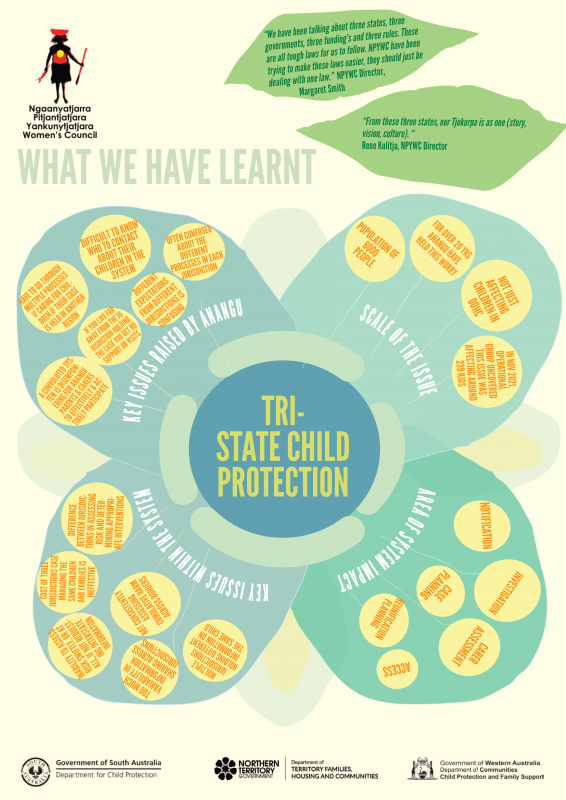Unifying Central Australia’s child protection services
In a region where for tens of thousands of years Anangu families have lived, connected by common language, tjukurpa and family – differing state laws and services can cause distress for Anangu carers, families and children navigating the child protection system.
Around 239 children and their families in the tri-state region of SA, NT and WA are engaged with Child Protection services across 3 jurisdictions. Families and carers of these children are experiencing difficulties understanding differing Child Protection rules and expectations across borders.
Families and carers across the tri-state region may face differing processes to access visitation, multiple case workers and multiple process for placement and reunification. NPYWC and state and territory agencies are coming together to see how we can consolidate these process to keep children connected to family, culture and country.

I could pick up a phone and know exactly who I am talking to instead of everyone looking for a case worker. It would make things easier for health departments. At the moment NPYWC is acting like the tri-stateofficer.
Tanya Luckey, Kinship Carer
We have been talking about three states, three governments, three funding’s and three rules. These are all tough laws for us to follow. NPYWC have been trying to make these laws easier, they should just be
dealing with one law.
NPYWC Director, Margaret Smith
In the hope of giving children and their families the best chance of being with family and culture on country, NPY Women’s Council has bought together the NT, WA and SA Child Protection Agencies to work towards a number of issues raised by Anangu carers and families. Concerns include:
- Difficulty in knowing who to contact about their children in the system
- Confusion about the different processes in each jurisdiction
- Confusion in having to go through multiple processes if caring for children when their case is held in another region
- Convoluted systems that become disempowering and difficult for Anangu parents and carers to effectively and actively participate
- Different expectations from different jurisdictions
- Lack of support to access visits to children if children are in a different state or territory

